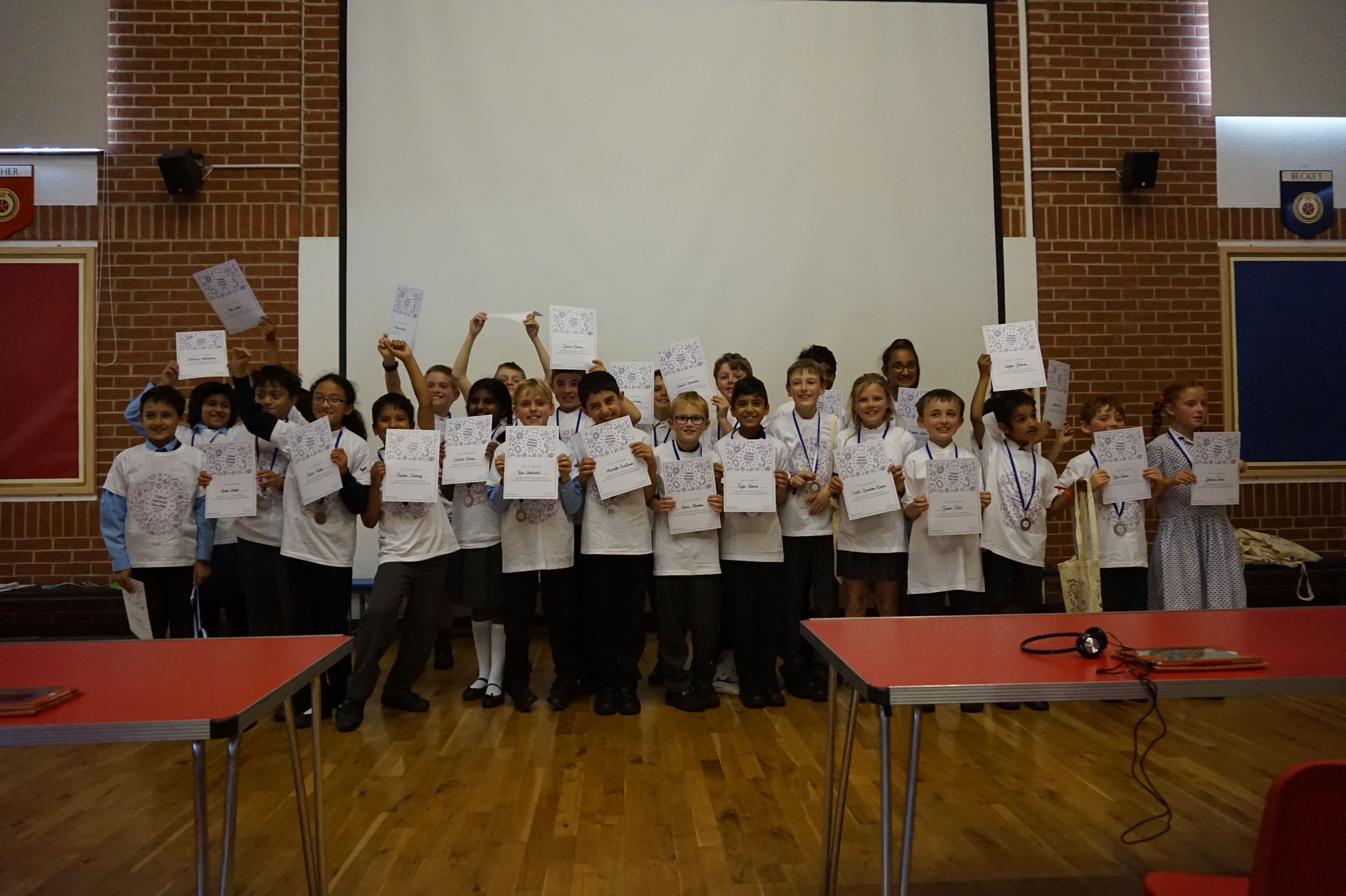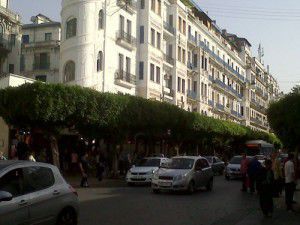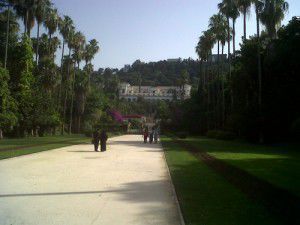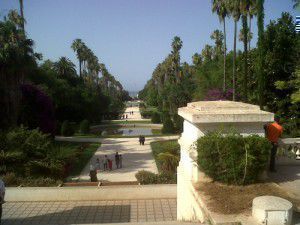Arabic: are you up for the challenge too?
After seeing how amazing our Junior Language Challenge semi-finalists were at learning Mandarin, we’ve set our 33 finalists the new challenge of learning… Arabic.
Over 250 million people speak Arabic, across 22 countries. There are a number of different dialects within Arabic, including Moroccan, Classical, Lebanese, Gulf and Egyptian. Modern Standard Arabic is understood across the Arab world, and is used widely across different publications.
Is Arabic as different to English as it looks?
There are several similarities between Arabic and English:
- The punctuation marks are used in the same way – however, in Arabic these can look very different; the question mark in Arabic is reversed, compared to the English way of writing a question mark.
- There are some Arabic words that have contributed to the English language, such as succar, which is ‘sugar’ in English.
The differences between English and Arabic make the language rather difficult to learn.
- Arabic letters look completely different to the English alphabet.
- These letters are also written right to left, instead of left to right. This means that the front of the book in Arabic would be considered the back in English.
- Sentence structures also differ to English, with the adjectives coming after the noun. For example, we would say the ‘blue car’, whereas in Arabic it would be ‘car blue’.
- Unlike English, Arabic only has 3 vowels and these have differentiations. Many words in Arabic start with a consonant followed by another consonant, and again like vowels, these have differentiations too. Another difference is that Arabic doesn’t have any capital letters; instead they use quotation marks to emphasise letters instead.
Although Arabic may seem like a difficult language to learn, it is one of the eight most spoken languages in the world. Hopefully with enough practice before the Junior Language Challenge, our finalists won’t be thinking ‘Ana La Afham’ (I don’t understand) or ‘Annajdah’ (help)! I am sure our finalists will be just as fabulous at Arabic, as they were with Portuguese and Mandarin. If you’re going to the Language Show on Friday 16th October, and you’d like to see how great our finalists are at learning Arabic, come and find us in room 3 (level 3).
And if you’d like to learn Arabic yourself, you can download our uTalk app to get started for free!
Alex
10 reasons to visit… Algiers
I must admit that Algeria does not feature highly among people’s bucket list destinations.
While most tourists visiting the region flock to Egypt or Tunisia, Algeria is still very much off the beaten track. Nor does it help that it has attracted a rather bad press over the last year or so: much of the country is a security risk and the FCO advises against all travel to half of the Algeria, and all but essential travel to much of the rest.
Chickened out? Well, there is always its next door neighbour Morocco, which admittedly has done much to develop its tourist industry over the years.
‘Ah but I’ve been there already’, you say, ‘I’ve stayed in a posh riad, I’ve had a ride on a camel and I’ve stocked up on more of those pointy slippers than I’ll ever need.’
Quite. So you’re looking for the real deal, are you? Well, the good news is that Algiers, the capital, is very much worth the detour, untouched by Easyjet, and better still, firmly in the ‘OK to visit, but be careful’ bit of the country. I was lucky enough to go twice, and here I am writing this: all bodily parts present and correct, wallet intact, and dignity unscathed.
As it happens, I was working on a project with one of the government ministries. This meant that I was fortunate enough to be met at the airport and whisked through immigration and customs in seconds. I also benefited from a security detail which picked me up and accompanied me wherever I went: a pair of friendly enough goons, wearing shades and Blues Brothers suits (sans hats), constantly tailing us in a slightly scruffy VW Polo – not a Bluesmobile.
So here are my ten reasons to visit Algiers (and a bit of the surrounding area):
1. The city centre
Algiers has a faded, run down beauty. The centre of the city is full of white stuccoed buildings in the French colonial style and you’ll love exploring the up-and-down streets and avenues. Pack a pair of stout walking shoes though, as it’s a hilly place. And as you take a break, sipping a coffee and people watching at one of the many excellent cafes dotted around town, you may be wondering where all the tourists have gone. Don’t worry: the last ones left circa 1962, so you really will have the place to yourself.
2. The view
You may find yourself in accommodation higher up and somewhat away from the city centre, with the city stretching out below you. Not for nothing is the city called ‘Alger la Blanche’.
3. Public transport
I found a little cable car that takes you down the hill (i.e. from the residential suburbs to the city centre) to the sea and Botanic Garden in just three minutes. There’s also a one-line metro that crosses the city, which, when I used it, was virtually empty. I wondered whether people had in fact been told it had recently opened – or maybe they simply refused to pay the 15p fare.
4. Cheap fuel
Petrol in Algiers costs only around 10p per litre. No, this is not a misprint for 110p. Algeria is, after all, still one of the world’s leading oil producers.
5. No retail chains
Should you require a fix from KFC, McDonalds, Zara, or any other global retailer for that matter, please leave Algiers immediately. To remind you, this is not Morocco. However, with your 4 X 4 filled up with 10p petrol you could probably drive there.
6. The food
If you enjoy your French food, you might like Algiers’ version of it. The seafood is excellent, especially when washed down with a glass of Oran wine, which is not bad at all. Alternatively, if you enjoy your coucous you’ll love the Algerian varieties. Do not expect Michelin star joints: most eateries are small and family run.
By the way, you will need to hone either your French or Arabic speaking skills when you negotiate your way around town, as very few people speak English. I strongly suggest a purchase of uTalk prior to departure.
7. The treats
Do you have a sweet tooth? There are countless well stocked patisseries wherever you look, with everything from tiny sugar dusted and intricately decorated almondy cakes to classic croissants on display.
8. Le Jardin d’Essais du Hamma
The botanical garden, Le Jardin d’Essais du Hamma, is lovely: classically designed, it is formal, tropical and a respite from the heat, especially if you’re visiting during the summer.
9. Tipasa
One day we were taken along the coast to the sleepy little seaside town of Tipasa, which goes back 2,000 years, and where it is possible to visit the remains of the Roman city. In fact Tipasa became one of the most important ports in Ancient Rome.
10. Notre Dame d’Afrique
If you are determined to venture high enough in the city you’ll find Notre Dame d’Afrique, a 19th century Catholic church, which is an official monument and commands views of the Bay of Algiers and the harbour. Its architecture is fascinating: a successful blend of Eastern and Western influences.
I can’t end my snapshot of Algiers without a quote from one of its best known sons. In his 1936 essay, ‘A Summer in Algiers,’ Albert Camus wrote: ‘In Algiers one loves the ordinary places: the sea at the end of every street, a certain volume of sunlight…’ What more can you ask for?
Steve
Which language are you learning? The results!
We had a great response to our recent language learning survey; thank you to everyone who took the time to complete it. First things first: we’re delighted to announce that the winner of the iPad mini prize draw is Konstantia Sakellariou. Congratulations, Konstantia – your iPad is on its way!
We wanted also to share a few of our findings with you. Some of the results from the survey were as we expected, others were quite surprising. Here are just a few of the things you had to tell us. Thanks again for all your thoughtful responses, we’ll put them to good use.
Which language(s) are you learning (or would like to learn)?
The first question was pretty straightforward. A couple of people ticked every language on offer (over 100) – now that’s what we call ambition! – but most chose between 1 and 5. Here are the top ten most popular languages: 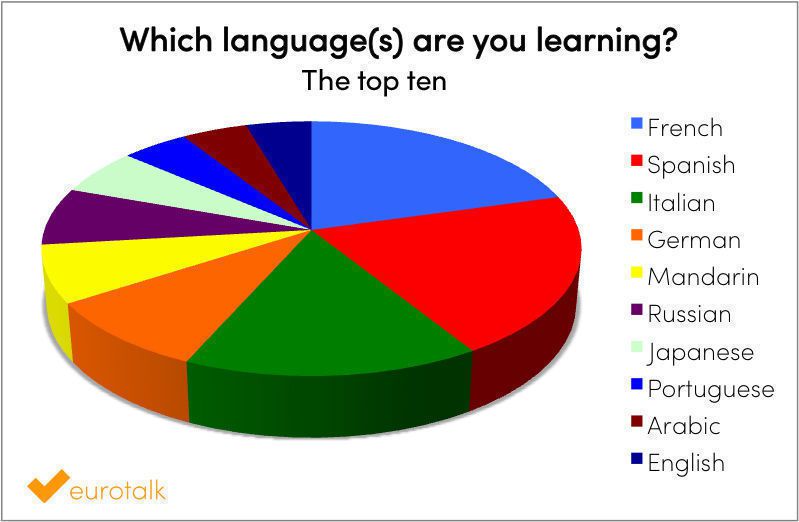 Other popular choices included Greek, Swedish, Dutch, Brazilian Portuguese, Norwegian, Irish, Polish and Icelandic. We also got some requests for languages we don’t yet offer, like Guernésiais and Twi – we’ll do our best to add those languages to our list, so watch this space!
Other popular choices included Greek, Swedish, Dutch, Brazilian Portuguese, Norwegian, Irish, Polish and Icelandic. We also got some requests for languages we don’t yet offer, like Guernésiais and Twi – we’ll do our best to add those languages to our list, so watch this space!
Why are you learning a language?
Next, we wanted to know why you’re learning a language. Nearly half of the respondents chose travel as a reason, and almost as many said they were learning a language just for fun. 36% of respondents said it was for family reasons or for a relationship, and 27% for work. The results were quite evenly split though, showing that there’s no one overwhelming reason – everyone has their own motivation.  Among the other reasons, we had a range of answers, including an interest in the culture of the language, personal challenge and wanting to follow literature, film and music in other languages. Many people are living in another country, which was their main motivation for learning the local language. And one person said that their heart asked for the knowledge, which we loved 🙂
Among the other reasons, we had a range of answers, including an interest in the culture of the language, personal challenge and wanting to follow literature, film and music in other languages. Many people are living in another country, which was their main motivation for learning the local language. And one person said that their heart asked for the knowledge, which we loved 🙂
What prevents you from learning a language?
We were also interested to know what stops people from learning a language, so we asked you to rate the following reasons out of 5. The most common barrier to learning is a lack of time, followed by not having found the right method, and then the cost involved.  Incidentally, if you’re facing any of these barriers, you may like to check out our recent posts, on finding time to learn a language and learning on a budget. And if you’re looking for resources, did you know you can try out the EuroTalk learning method for free? Either visit our website, or download our free app, uTalk for iOS, to give it a go. We believe learning a language should be fun, because our research shows we learn much better if we’re enjoying ourselves, and this in turn makes it a lot easier to overcome the obstacles that get in the way. See what you think! Other answers included not having an opportunity to use the language, a lack of motivation and difficulty finding resources for the particular language they wanted to learn (we may be able to help there – we’ve got 136 languages and counting…).
Incidentally, if you’re facing any of these barriers, you may like to check out our recent posts, on finding time to learn a language and learning on a budget. And if you’re looking for resources, did you know you can try out the EuroTalk learning method for free? Either visit our website, or download our free app, uTalk for iOS, to give it a go. We believe learning a language should be fun, because our research shows we learn much better if we’re enjoying ourselves, and this in turn makes it a lot easier to overcome the obstacles that get in the way. See what you think! Other answers included not having an opportunity to use the language, a lack of motivation and difficulty finding resources for the particular language they wanted to learn (we may be able to help there – we’ve got 136 languages and counting…).
How have you used your language when travelling?
Finally, we asked how knowing another language has been useful when you’re travelling. There was no clear winner here, which just goes to show knowing a language is always useful! But the top response was that it gives you the ability to talk to locals in their own language; many people added that they felt more welcome as a result and that it gave them independence so they could make the most of their trip. There were lots of practical reasons too, with getting around and eating out narrowly beating shopping in the poll. If you missed out on the survey this time, don’t worry – we’re planning another one soon, so keep an eye on the blog (you can subscribe by email above to get the latest updates), or follow us on Facebook or Twitter. And if you didn’t answer this survey but would still like to have your say on any of the questions, you’re very welcome to email us or add your thoughts in the comments below.
If you missed out on the survey this time, don’t worry – we’re planning another one soon, so keep an eye on the blog (you can subscribe by email above to get the latest updates), or follow us on Facebook or Twitter. And if you didn’t answer this survey but would still like to have your say on any of the questions, you’re very welcome to email us or add your thoughts in the comments below.
Liz
Data above based on 877 survey responses.
Goal! around the world [Infographic]
Sometimes one word is all you need… With the World Cup getting underway today, here’s how each national team says that all-important word, ‘goal’.
You can find this and lots more in our language learning app, uTalk – available to download and start learning right now from the App Store. So whether you’re watching the football at home or away, you’ll always be prepared.
(There are lots of non-football related words in there too, for those of us with other interests!)
Please do share the infographic with friends and tell us how you’ll be shouting ‘Goal!’ this World Cup 🙂
Embed This Image On Your Site (copy code below):
